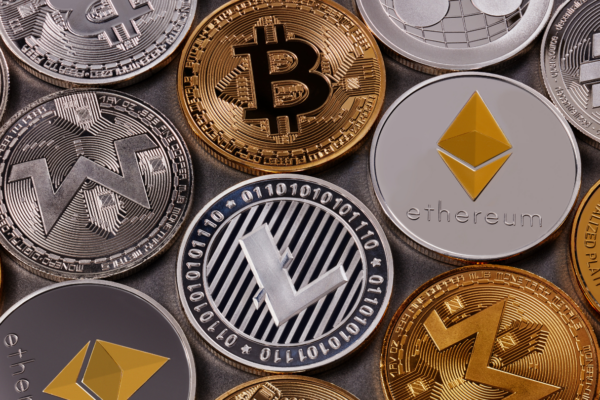What is Stellar (XLM)? Is it halal?

IW
IFG Staff Writers
5 min read
Last updated on:
Stellar is an open and decentralised network designed for storing and moving money. It aims to make borderless transactions possible regardless of a particular currency.
Their goal is to make money move like email. Stellar is halal and was one of the first blockchain networks to receive a shariah-compliant certification. Read on for a much deeper dive into Stellar itself and the Islamic views on it.
What is Stellar?
What does Stellar do?
Stellar is an open-source decentralised network that allows for money and assets to be sent digitally. The aim is to enable all the world’s financial systems to be able to work together on one network.
Stellar was launched in 2014 and has since processed over 2 billion operations. Stellar is cryptocurrency-adjacent which means it’s not trying to replace the current financial status quo, but rather improve it.
Unlike other cryptos such as Bitcoin which can only trade bitcoins, Stellars allows any kind of money to be traded. Its ultimate aim is to make borderless transactions possible regardless of a particular currency.
How does Stellar work technically?
The Stellar network works through the use of its token, Lumens (ticker XLM). These are needed (in small amounts) to initialise accounts and make transactions.
Through Stellar, you create a digital token that has a 1:1 relationship with a traditional currency, be it USD or Euros. As tokens are backed by an equivalent deposit, exchanging tokens with someone allows them access to that traditional form of currency.
This mechanism thereby allows you to transact any type of money, making for a more inclusive and accessible financial system. For example, a digital dollar token will allow anyone to transact in dollars without them having to have a U.S. bank account.
Like Bitcoin, the software is decentralised and runs on a blockchain network. However, it is faster, cheaper and more energy-efficient than most of its competitors.
What are the use cases of Stellar?
Its primary use case is to facilitate cheap and near-instant international payments and remittances.
Stellar also has several secondary use cases:
- Boost financial access to the unbanked, with its near-zero fees making it a convenient choice for making micropayments
- Act as a decentralised exchange for assets such as crypto, forex or securities
- Its blockchain can be used as a launchpad for new tokens, giving crypto projects another route to market
Are people using Stellar right now?
Yes at the time of writing, over the last 24 hours there have been ~ 3m successful transactions on the Stellar network with an average transaction fee of $0.00004788. This is substantially larger than Bitcoin’s ~220k daily recorded transactions.
What are the strengths and weaknesses of Stellar?
Strengths
- Fast processing times
- Near zero transaction fees
- Widely available on crypto exchanges
- Open-source
- Has a noble mission to revolutionise international payments and boost financial inclusion rates in the developing world
- Environmentally friendly
- Strong partnerships with the likes of IBM, Deloitte and even the Ukrainian government
Weaknesses
- Relatively centralised for a cryptocurrency with The Stellar Development Foundation holding 30bn lumens. This amounts to 60% of the total supply and creates a central point of failure
- Its closest competitor Ripple (XRP) has faced regulatory scrutiny which could spill over to Stellar if they’re not careful
- Stellar has high price volatility and thus is a high-risk investment
Is Stellar a good investment?
Stellar (XLM) is one of the most established cryptocurrencies and currently is the 26th largest cryptocurrency by market cap. XLM can be bought from most exchanges including Coinbase and Binance.
It reached a peak of $0.938 in January 2018 and is currently trading around $0.11 at the time of writing, having lost almost 90% of its peak value. This shows that historically Stellar has been poor at retaining its value.
Stellar has great adoption rates, strong partnerships with established companies such as IBM and has genuine environmentally friendly credentials.
This suggests a positive future for Stellar.
However, this may not be reflected in the token’s value. The Stellar Development Foundation has stated its goal is to promote financial inclusion.
Making money isn’t their prime motivation which is commendable but this could come at the expense of the price.
Furthermore, Stellar’s use cases don’t require the use of many lumens. This limits the upward demand pressures on price. In contrast, Ethereum’s functionality is dependent on the use of its token which leads to increased price appreciation.
Alternatives to Stellar
Ripple (XRP)
Ripple is another cryptocurrency that is trying to connect financial institutions and make borderless transactions cheaper and quicker. Ripple is the sixth largest crypto by market capitalisation.
It is one of the more established cryptos having been cofounded in 2012 by Jed McCaleb who then left to found Stellar. Unlike Stellar, Ripple is a closed system.
Ripple is also focusing on established banking clients whereas Stellar is more focused on developing markets. Stellar has more use cases, such as money remittances and distributing loans to unbanked consumers.
Litecoin (LTC)
Litecoin is a fork of Bitcoin, that aims to become the internet’s favoured medium of exchange. Litecoin has low transaction fees but whilst its transaction speed is quicker than most cryptos, they still take minutes compared to Stellar’s seconds. Litecoin’s daily transactions also don’t come close to Stellars (123k vs 3.3m).
Nano (NANO)
Nano is another cryptocurrency with near-instant transaction speed and low fees. Nano transactions can close under a second and no transaction fees are charged. Nano achieves zero transaction fees by relying on users to maintain the network for the sake of ensuring a working network instead of for direct monetary gain. However, Nano is just a digital currency whereas Stellar is a platform with more capabilities.
Is Stellar Halal?
When it comes to cryptocurrency in general, our view is that investing in crypto is halal as long as the project itself is halal. We see cryptocurrency as a type of digital asset (with the potential for some to become fully-fledged currencies).
We don’t find there to be anything problematic from an Islamic perspective about blockchain technology, and cryptocurrency which is a use of blockchain and seeking to profit from it. For more on our approach to crypto, check out this article.
You want to avoid projects where:
- the technology underpinning the project is intrinsically linked to a haram transaction (e.g. interest-based lending)
- the ecosystem that they are creating is so inextricably tied up with illicit/immoral activities that it would be inappropriate to support such an ecosystem (e.g. a project geared solely towards gambling)
The case for yes and why
Stellar was one of the first blockchain networks to receive a shariah-compliant certification. It was issued by the Shariya Review Bureau which has multiple sharia scholars working in 15 different countries. Notable names include Mufti Faraz Adam and Mufti Ismail Ebrahim Desai in the UK and South Africa respectively.
The case for no and why
If you follow the opinion that crypto isn’t permissible then Stellar by extension would also not be permissible.
Conclusion
In summary, Stellar is a solid decentralised global payment network that is used widely due to its quick processing times and low transaction fees. It has a noble aim of boosting financial inclusion and revolutionising international payments. We are satisfied that it is indeed a halal asset and thus permissible for Muslim investors to buy.
Find out more about crypto generally on our crypto page.
Comments (0)
Related Articles
View all
Is Bitcoin and Crypto Haram? The Ultimate Guide for Muslim Investors
14 July 2025 9 min read




Leave a Reply